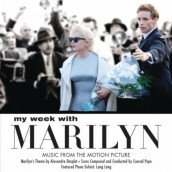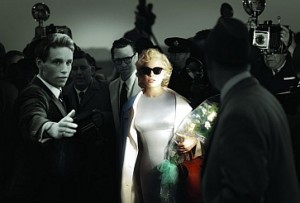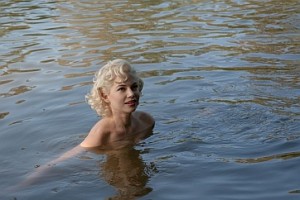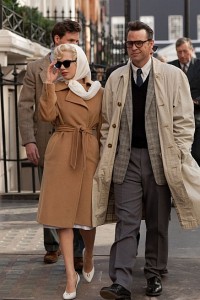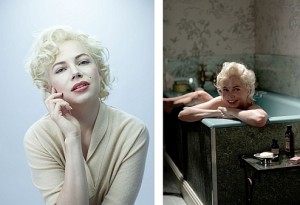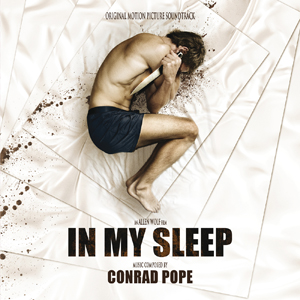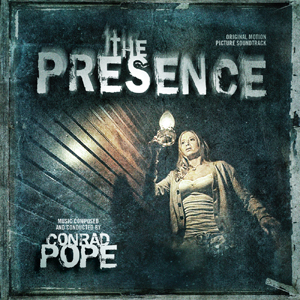It takes many skilled hands to keep Hollywood running as the stars take their bows- an army that includes personal assistants, makeup artists and publicists, all of whom are sure to step out of the way of the glaring flashbulbs. Then there’s the even less sexy caste of the studio machine called “below the line,” the mostly unrecognized visual effects artists, writers, production designers, editors, costumers and other skilled craftspeople who allow the stars to shine- their own jobs eased on the steam of even more obscure laborers chained to computers and sewing machines. Yet these toiling men and women are no less important for being several steps further down the media-hungry ladder.
When it comes to the BLT category of film composing, its few truly successful composers command similar underlings to provide the “additional music” and orchestrations that let allow their work step out in its Sunday best, sometimes without acknowledgement of what it took their score to shine. It seems that Conrad Pope has done nearly every imaginable duty for the composing biz’s biggest names, often under his own moniker, and sometimes with nary a mention for the numerous, big-budget likes of JURASSIC PARK, WHAT WOMEN WANT, STAR TREK: NEMESIS, THE WOLFMAN and JULIE & JULIA. But when it came to his own music, Pope notable scores accompanied less auspicious productions like METALBEAST, THE RISING PLACE, LLOYD and PAVILLION OF WOMEN. All shouted of a musical ability that deserved a real shot. Now after several worthy tries, it’s time for Pope to take his real, long-awaited, and well-deserved Hollywood bow with a movie, and score that just might get the ultimate recognition in town. And standing next to Pope for the occasion is a woman who’s likely engendered the most burnt flashbulbs in tinsel town history.
If it’s likely that Conrad Pope near imagined that he’d be working behind the scenes with Marilyn Monroe, then one can realize the love-struck shock and awe that a lowly, if handsome third assistant director had when spending MY WEEK WITH MARILYN. It’s seven days that happen during the English production of 1957’s THE PRINCESS AND THE SHOWGIRL during which the consummate king of actors Laurence Olivier was driven to the point of madness by the far-from professional methods of the world’s most famous sex symbol. When she takes a shine to Olivier’s helper Colin Clark, the young man finds himself more than enamored with the troubled starlet, whom he tries his best to keep on an even keel for the sake of her sanity- not to mention Olivier’s production.
Just as Marilyn casts her spell of wounded beauty on Colin, Conrad Pope’s beautifully thematic score conveys the thrill of entering a world of movie make-believe, as well as the bittersweet romance of an impossible relationship with the object of its desire. Rambunctious energy joins with heartfelt emotion and 50’s era jazz to poignantly magical effect. It’s a score whose polish not only shows Pope’s dexterity at invisibly helping the likes of John Williams, James Horner and Jerry Goldsmith to sound their best, but also resonates with own voice, while also rekindling the swooning melodic resonance that filled such iconic soundtracks as SUMMER OF ’42, SOMEWHERE IN TIME and LOVE STORY. But best of all, Conrad Pope captures the classic romance of a Hollywood that Marilyn Monroe still embodies like no other starlet. Listening to this captivatingly gorgeous score, we know why.
ASSIGNMENT X: How did you end up getting the gig for MY WEEK WITH MARILYN?
CONRAD POPE: Alexandre Desplat had written a theme for MARILYN for Harvey Weinstein, and Alexandre recommended me to Harvey to adapt his theme and write the rest of the score. A funny story: I had just returned from vacation in San Francisco with my family and found a message saying “Call Harvey Weinstein’s office.” I thought it was a joke, but it turned out to be some of the best news I had ever gotten in my life.
AX: What were your impressions of Marilyn Monroe before you scored this film? And did working on it change them?
POPE: When Marilyn died, I was a child and really had no impression of her. And like most people in America, I knew her only from her movies—SOME LIKE IT HOT of course, DIAMONDS ARE A GIRL’S BEST FRIEND, and for some reason, THE MISFITS (I think because of the Alex North score more than anything else). I knew that she was a great sex symbol and a lover to a president, mob bosses, directors, athletes, and agents…. a pretty wide demographic! But then again, what was there not to like? The film presented Marilyn as not only the international sex symbol, but also the fragile little girl who had never known a childhood because she was always striving to leave Norma Jean behind and become Marilyn.
AX: How did you want the score to convey, and contrast the sensual movie fantasy with the tragic “little girl lost” quality of Marilyn Monroe?
POPE: This is a very good question, because when I first began working on the film, the opening titles had a card that read, “This was a fairy tale.” And so, we developed with the filmmakers a strand of music that was always Marilyn’s music. Both the Marilyn-as-movie-star, e.g. when she steps off the plane in London, and the Marilyn who feels abandoned by her husband Arthur Miller which is counterpointed against a strand of music which represents the innocent Marilyn, the little girl–Norma Jean, if you will. At the same time, there is music that conveys the era of the film (the 50’s) e.g. music for big band, and the popular exotica of the time, and very English music, which accompanies Colin and his entrance into the world of movies.
AX: With such a leap of faith being given to you, did you feel the pressure to prove yourself in scoring a film that would likely be one of the Weinstein Company’s big Oscar contenders?
Well, when I was first given the film, I don’t think there was a sense that this would be an Oscar contender. In fact, my impression was that this was a modest, almost slice-of-life film that sought simply to depict a week or two of a magical time for Colin Clarke, the English protagonist of the film. But as I worked on the film, Harvey Weinstein concurrently started to work his magic on the film, expanding it and making it more cinematic, resulting in the tour-de-force for Michelle Williams that it is today. As to the pressure, I always feel the pressure of trying to deliver to the filmmakers the music they want, and the music that will support their vision, while not letting anyone down.
AX: While there are swooning orchestral moments, you mostly take a subtle approach for pianos and strings. Was there ever an inclination to go for a bigger, more lushly symphonic approach throughout?
POPE: No. I would say actually the first concept of the score was to have it for piano alone, with moments of big band taking an almost SUMMER OF ’42” approach. As the film developed in Harvey’s hands, the picture seemed to call forth a more sweeping, cinematic approach to the scoring.
AX: How “old school” did you want the score to be, in terms of the sound of PRINCESS AND THE SHOWGIRL-era movie scores.
POPE: We were always aware of trying to convey the feeling of the old school, even down to engineer Pete Cobbin using microphones from 1948 in recording some of the big band cues as well as some of the other cues. We tried to duplicate at times the harmonic feel of the period as well as in some of the music that was used as source, voicings which might be considered emblematic of that golden era.
AX: There’s a romping enthusiasm and romantic melancholy to your score as well that brings to mind the memorably thematic work of such composers as John Williams, Francis Lai, Michelle Legrand and John Barry. Did you want to pay them tribute in your score?
POPE: I certainly wanted to tip my hat to all of those great thematic writers, and I was helped along by a great classic theme provided by Alexandre Desplat, One might say we looked to Michel Legrand and Francis Lai for their lyricism, John Barry for his epic romantic sound, and John Williams for his scores which have such youthful energy, which in a cinematic way can convey the optimism and can-do spirit of the 50’s.
AX: Could you talk about how you wanted to reflect 50’s-era jazz in your score as well?
POPE: We needed to convey the energy, sense of newness and possibility that the young protagonist feels in the film, and whole big band vibe seemed to fit the visuals as well as the story.
AX: What was your interaction with the source cues, particularly the beautiful piece “It’s A Wrap / I Found A Dream” where you segue from your own score to “Marilyn”‘s song and back again.
POPE: Very close. When composing a film score, one must at all times be aware, not only of the overall arc of the score, but how one can thread the underscore with the source pieces–in this particular case, with source cues that are performed onscreen. The challenge in this particular sequence is that the scenes go from the excitement of filming where Marilyn is hitting all the marks, to Marilyn (Michelle Williams) singing a piece from the original film, “I Found A Dream,” back to the wrapping of the filming and Marilyn’s sad farewell to the cast and crew. So in this, the underscore is orchestrated in a rather modern fashion, but then blends with an orchestration of the accompaniment of the song that is more in keeping with the 50’s “tight” voicings of the strings. The further challenge of this sequence was that we had to match Michelle’s performance that was recorded earlier, separately as a solo, with an orchestral performance that would follow her, and not a click track. All in a day’s work!
AX: You began your rise through the musical ranks as an orchestrator. What exactly does that job entail?
Anything you say “Yes” to! But seriously, the job can involve anything from ghostwriting, to adapting, from filling in blank bars, to merely paying attention to a very detailed sketch. In other words, a good in-demand orchestrator understands every aspect of musical composition, orchestral color, and in the film business, an orchestrator also knows how all of these musical elements must co-exist and heighten the overall soundtrack of a film.
AX: You can certainly hear the orchestator’s touch in the soundtracks that Peter Knight, Marcus Dodds and Nicholas Dodd have done for Philippe Sarde, Trevor Jones and David Arnold. In that respect, do you think it’s important that an orchestrator absolutely sublimates himself to the composer, or can he let it be heard?
POPE: To quote my mentor, the late great legendary Arthur Morton (best known as a mentor and orchestrator for Jerry Goldsmith): “An orchestrator has to have a good set of ears, and I don’t mean musical ears–that’s a given. He has to be able to hear what the client needs done.” That’s always been my goal: not to express myself in my orchestration–for that, write your own music! –but rather, to help an experienced composer always sound the best that he can and an inexperienced one discover his voice. Mind you, I do have very specific ideas about what I think sounds best, and I always bring my knowledge of the literature to every project, meaning, that if I do my job correctly, you won’t hear the same formulas over and over again; but each orchestration will have something fresh. At least that’s the goal.
AX: MY WEEK WITH MARILYN is about the relationship of a kid and a woman he views as a goddess. As someone who’s worked with the likes of Jerry Goldsmith and John Williams, could you identify with that star-struck quality?
As anyone who has been fortunate enough to have worked in show business at the very highest levels, I think one can always identify with the feeling one has when you’ve walked “off the street and onto the lot” and find yourself side by side with men and women whose work has inspired you and has served as models of excellence. That said, I’ve always admired both John and Jerry for the men and musicians they are, rather than the celebrity they’ve attained. And for any working musician, they will attest that if the world were fair, Jerry and John’s public reputations would be even greater than they are today. As you can tell, I’m still star-struck.
AX: You’ve done several “Hail Mary” ghostwriting gigs that have seamlessly helped save scores otherwise undone by multiple composers and studio squabbling. How difficult is it to walk into that kind of highly political musical situation, with the added pressure of writing in another composer’s voice to make the final score as seamless as possible?
POPE: It is difficult, but to quote a phrase that Earle Hagen used to summarize many things, “It’s the gig.” I would say that it is always best to approach these situations remembering that you have been hired to “help” the situation. It is not your opportunity to think, in the words of one composer I know, “Wait til they get a load of me!” Where I have been very fortunate is this: I have always been a fan and loved the music of the composer(s) whose work I have been asked to supplement, rearrange, or adapt–and in some cases, contribute original work in “their” voice.
By being respectful to their original work, the vision of the director, and the concerns of the company, I have always found their concerns help clarify musical goals and keep me “true” to the ultimate end, which is a successful, communicative and evocative score. But I would say that the downside to this is that it can be a challenge to shed my skills as a chameleon, acquired over a career of doing these thankless tasks, when called upon to create my own original score.
AX: As an orchestrator, you’ve been part of the HARRY POTTER saga from its beginning. What was it like to see the series reach its conclusion, and what do you think your work brought to it?
POPE: As with any job, you’re only aware of generally what’s right in front of you and you seldom think about a film such as HARRY POTTER and its history. Indeed, I’ve often commented, “If Hollywood had its own language, its grammar would have no use for a past or a future tense. You would only need a present tense.” Having said that, I feel privileged to have worked on the Potter music– from John Williams’ first trailer, through the first film, to orchestrating for Bill Ross and making sure everything was “just right” on the second, to being part of one of the most remarkable Potter scores, #3, to helping my friend and colleague Alexandre Desplat put his own stamp on the music of the iconic Wizard in the final two installments.
In the decade since I first worked on Potter, I’ve seen many changes in my own life and career. For the first score, John was in London on 9/11 conducting Harry Potter 1. A decade later I was in London conducting MY WEEK WITH MARILYN. When I first received the sketch “Leaving Hogwarts” from John Williams for the first HARRY POTTER, I sat at the piano and played through it as I normally do, and thought, “Aha–the real magic of Harry Potter is that it is a love story.” I was quite moved by the beauty of the music. When we came to re-record portions of the same cue for the final film of the series, I found the music no less beautiful or magical than it was in the first film. In the end, my contributions were simple ones: I paid close attention to John Williams’ sketches and his intentions. With Alexandre I tried to carry forth my experience with the original first three films into the sound world of Alexandre Desplat–achieving, I hope, some continuity.
AX: You’ve also been busy doing some notable, and atypically melodic “horror” scores for IN MY SLEEP and THE PRESENCE, both of which Moviescore Media (moviescoremedia.com) has put out. Could you talk about your approach for these two pictures, and the challenge in taking a spare, melodic approach for a genre known for its dissonance?
POPE: When I first saw THE PRESENCE, I was struck by how visual and silent it was. The film’s setting, a haunted cabin, secluded deep in the wilderness, suggested a natural, acoustic approach to the music, rather than the more electronic ambient approach which we have come to expect in today’s commercial “horror” pictures. But then, THE PRESENCE isn’t a horror film. And, it is not “just” a ghost story. Rather, it is a drama that ruminates on the psychological “ghosts” which haunt us all from within, as well as the ghosts that can terrorize us from without. When talking to director Tom Provost about how to best go about scoring the film. I suggested that we try to build tension by composing music which, if not married to the film, would not necessarily be scary at all, But when that music was put to the film, it created a disturbing and unsettling sensibility. By concentrating on musical themes and colors, I felt I could capture something about the emotional world of the THE PRESENCE as well as complementing the extraordinary performances of the actors, allowing the sound design to convey the more obvious natural and supernatural sound elements.
As far as the music for IN MY SLEEP, it was a great opportunity to work with a director whose vision for the film was as expansive and as varied as my ideas for it. Allen Wolf is a composer’s dream for a collaborator. Hope I’m lucky enough to work for him again.
AX: People who work primarily as orchestrators seem to have a hard time becoming film composers in their own right. What’s the “trap” of working as an orchestrator in that respect, and how do you think you’ve finally overcome it with MY WEEK WITH MARILYN?
POPE: As a prominent Hollywood agent once told me, when I was looking for representation as a composer: “Conrad! The town doesn’t need another composer. The town needs 3 more Conrad Popes!” What he meant by that is simply that agents like to oversell their clients, having them do two or three films at once. And thus, having them overextended, they need the services of an orchestrator like myself to do all of the tedious tasks of composing, i.e. fashioning accompaniments, working out variations, varying the bass lines, reharmonizing things, deciding instrumentation, etc., and then filling in all of those notes. Therefore, it is very easy to become typecast as a soulless technician and someone who only knows the technique of music and is not possessed by its spirit (isn’t that the plot of AMADEUS?).
Of course, I’ve never known an orchestrator who couldn’t write music, but I’ve known many composers whom I would be reluctant to call “orchestrators.” I became an orchestrator as a way to become known as a composer. Hopefully, thanks to Alexandre Desplat and MY WEEK WITH MARILYN, will hear the music and perhaps come to view me in an unfamiliar light–that is, as a composer and not simply an orchestrator.
AX: What’s it like to truly have your own “star” moment with a true quality film like MY WEEK WITH MARILYN?
POPE: It feels great, I’m thankful, and I appreciate every passing moment. I hope that in the future, whatever my role, I will always work on films of this quality and with this much heart.
Conrad Pope’s score is available now on Amazon MP3 and on CD through Sony Classical Music. Visit Conrad Pope’s website HERE
AGREE? DISAGREE? LET US KNOW WHAT YOU THINK – COMMENT BELOW!
Follow us on Twitter at ASSIGNMENT X
Fan us on Facebook at ASSIGNMENTX
Article Source: Assignment X
Article: Composer Interview with MY WEEK WITH MARILYN’s Conrad Pope
Related Posts:




